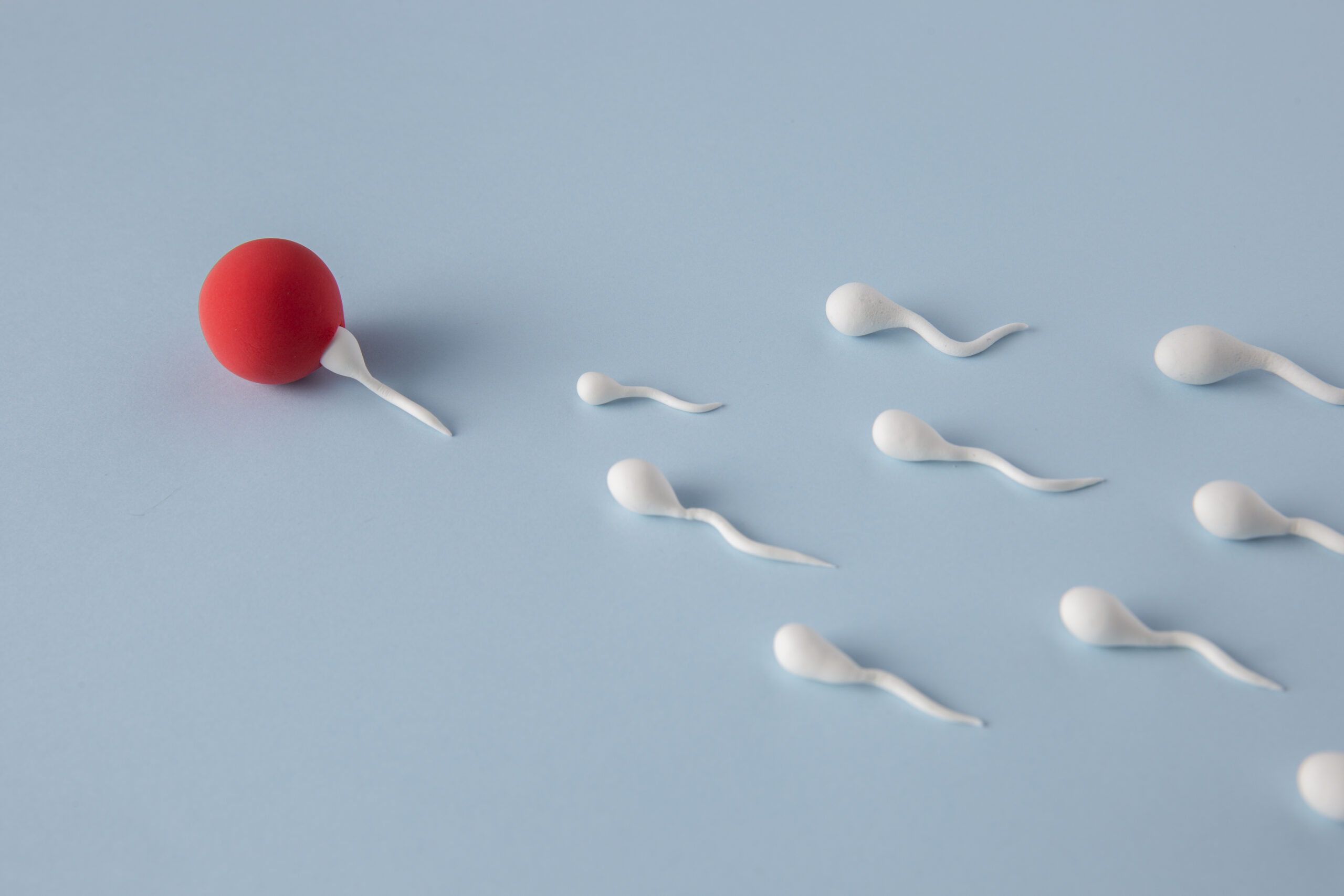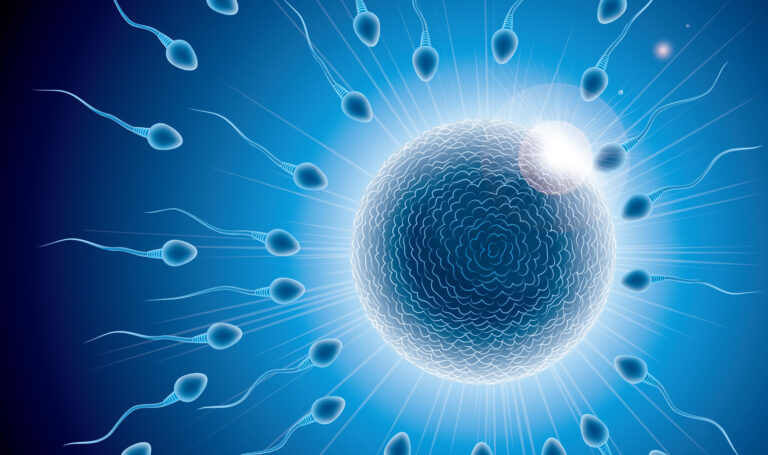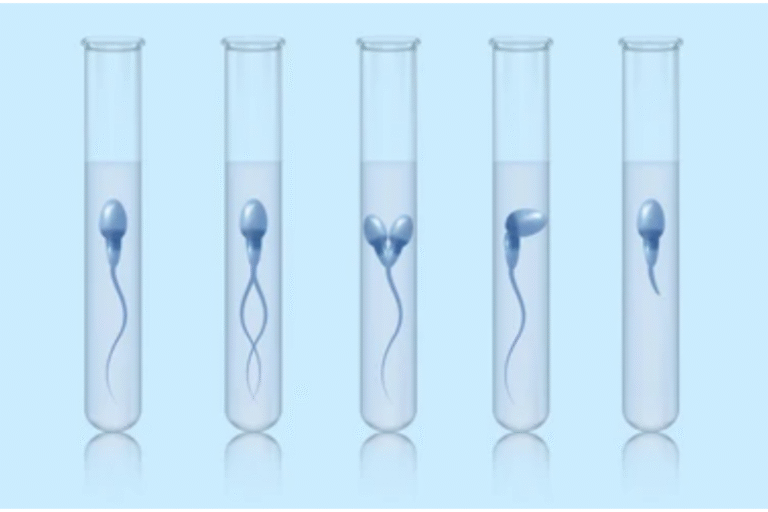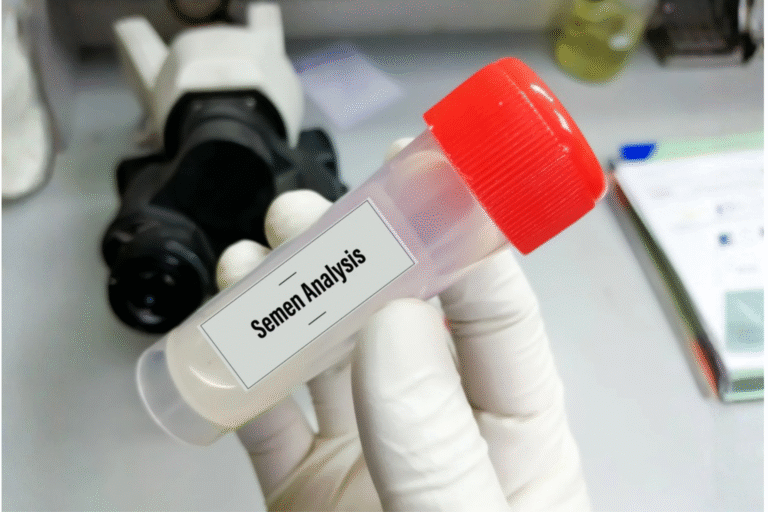Your semen analysis looks fine, but you’re still not getting pregnant.” Or worse: “Your sperm count is low, but let’s just try IUI anyway.
Fertility myths not only create confusion but can also delay the right treatment and add unnecessary emotional weight to an already sensitive journey. By separating fact from fiction, you empower yourself with clarity and confidence. At IVF Spring, we’re here to provide compassionate, evidence-based guidance—so you can move forward informed, supported, and hopeful about your path to parenthood.
“Your semen analysis looks fine, but you’re still not getting pregnant.” Or worse: “Your sperm
count is low, but let’s just try IUI anyway.”
Sound familiar? Here’s what your doctor might not be telling you about a crucial test called DNA
Fragmentation Index.
What's Really Inside Your Sperm?
Imagine your sperm as delivery trucks. A regular semen analysis checks how many trucks you have, how fast they drive, and what they look like. But it doesn’t check if the cargo inside is damaged.
DNA fragmentation measures whether the genetic instructions inside your sperm are broken. Even perfect-looking sperm can carry damaged DNA – and damaged DNA means no healthy baby.
Think of it this way: you can have a beautiful envelope, but if the letter inside is torn and unreadable, the message won’t get through.

Who Should Get This Test?
You need DNA fragmentation testing if you have:
Normal sperm but no pregnancy: Everything looks fine on paper, but months pass without conception. The problem might be hiding inside your sperm’s DNA.
Poor sperm parameters: Low count, poor movement, or abnormal shape. When your basic sperm quality is already compromised, DNA damage often makes things worse. Before starting any treatment, you need to know the complete picture.
Pregnancy losses: Getting pregnant but losing it early? High DNA fragmentation is a common culprit behind recurrent miscarriages.
Failed fertility treatments: IUI didn’t work? IVF embryos didn’t develop well? DNA fragmentation could explain why.
You’re over 40: Age damages sperm DNA faster than it affects count or movement.
Here’s the thing: poor sperm quality and DNA fragmentation often go together. When your sperm count is low or movement is poor, the DNA inside is frequently damaged too. It’s like a car with both engine problems and faulty electronics – you need to fix everything, not just one
issue.
What High DNA Fragmentation Actually Does?
High DNA fragmentation doesn’t just make conception harder – it sabotages your entire fertility
journey:
You can’t get pregnant naturally. Damaged DNA means sperm can’t properly fertilize eggs, even if everything else looks normal.
Treatments fail. IUI success drops dramatically. Even with IVF, damaged sperm DNA creates poor-quality embryos that don’t implant or develop properly.
You lose pregnancies. High DNA fragmentation increases miscarriage risk, especially in the first trimester. You might get pregnant repeatedly but can’t maintain the pregnancy.
You waste time and money. Cycle after cycle of failed treatments while the real problem goes undiagnosed.

The Good News: It's Often Fixable
Unlike sperm count or movement problems, DNA fragmentation frequently improves with treatment. Here’s what actually works:
Start with supplements. CoQ10, Vitamin C, and antioxidants can significantly reduce DNA damage within 2-3 months. Your body needs raw materials to repair damaged DNA.
Cool things down. Heat damages sperm DNA faster than anything else. Switch to loose clothing, take cool showers, keep laptops off your lap. Small changes, big impact.
Fix the basics. Stop smoking immediately. Limit alcohol. Get proper sleep. Exercise moderately. Your lifestyle directly affects your sperm’s DNA quality.
Address medical issues. Varicocele repair can dramatically improve DNA fragmentation. Hormone imbalances, infections, and inflammation all contribute to DNA damage.
The key is giving your body 2-3 months to produce new, healthier sperm. That’s how long the sperm production cycle takes.
When You Need a Fertility Specialist
If your DNA fragmentation is high, don’t try to fix it alone. A fertility specialist can:
Find the root cause. Is it lifestyle, medical, or genetic? Different causes need different treatments.
Monitor your progress. Follow-up testing shows whether treatments are working.
Adjust your fertility plan. High DNA fragmentation changes how you should approach IUI, IVF, or ICSI.
Prevent wasted cycles. Why attempt treatments that won’t work with your current sperm DNA quality?
Don’t wait if your DNA fragmentation is over 30%, you’ve had multiple treatment failures, or you keep losing pregnancies. Professional guidance saves time, money, and heartbreak.

We Test DNA Fragmentation at Our Mumbai Clinic
Here’s why we include DNA fragmentation testing in our fertility evaluations:
Most “unexplained infertility” isn’t actually unexplained. High DNA fragmentation explains why many couples struggle despite normal basic tests.
Treatment works better when you know the complete picture. We’ve seen too many couples waste months on treatments that couldn’t succeed with their current sperm DNA quality.
Early diagnosis changes everything. Couples who identify and treat DNA fragmentation often avoid more invasive treatments entirely.
We don’t just run the test and hand you results. We explain what your numbers mean, create a targeted treatment plan, and monitor your improvement every step of the way.
Remember: The most successful couples aren’t the ones with perfect initial test results. They’re the ones who get complete information early and create the right treatment plan from the start.









